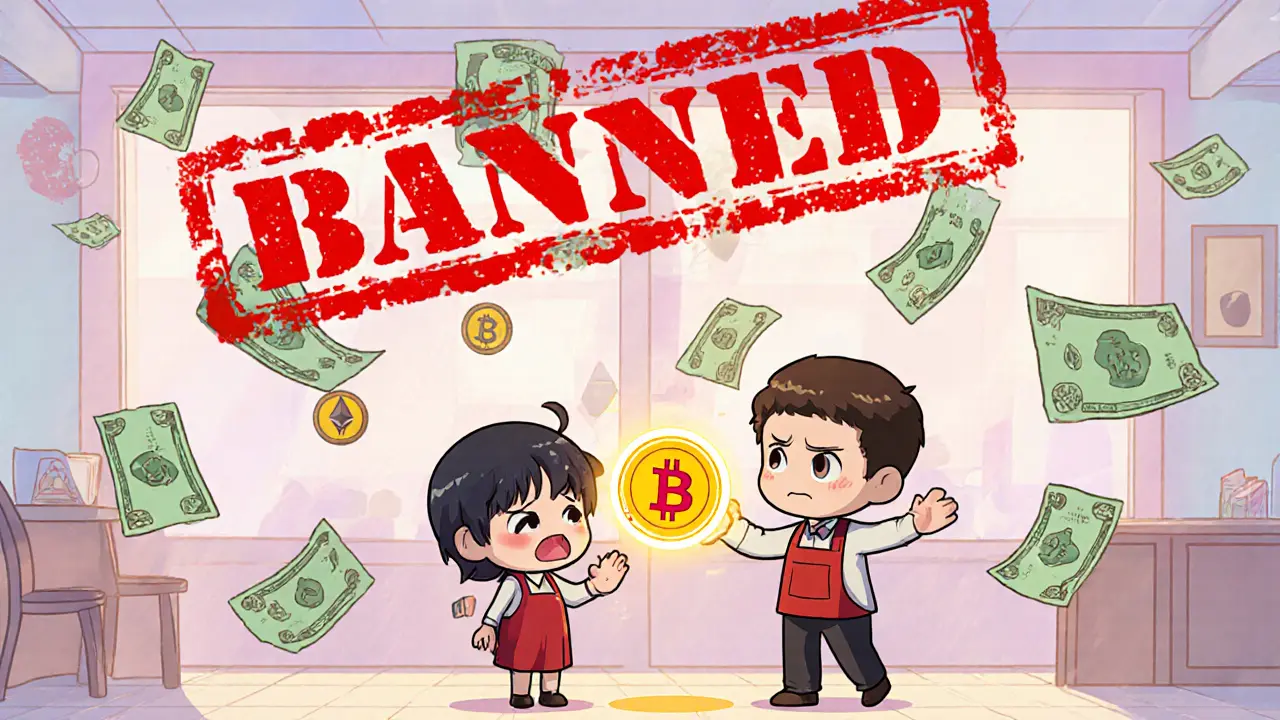Turkey Crypto Payment Ban: What It Means for Users and Traders
When Turkey banned crypto payments, a government rule that prohibits using cryptocurrencies like Bitcoin to pay for goods and services. Also known as digital currency transaction restrictions, it was meant to protect consumers and stabilize the Turkish lira—but it didn’t stop people from holding or trading crypto. The ban, enacted in April 2021 by the Central Bank of the Republic of Turkey, didn’t make owning Bitcoin or Ethereum illegal. It only blocked businesses and platforms from accepting them as payment for products or services. That’s a big difference. You can still buy, sell, and hold crypto. You just can’t use it to pay for your coffee, phone bill, or online subscription.
This rule hit hard because Turkey had one of the highest crypto adoption rates in the world. People turned to Bitcoin and stablecoins to protect their savings from hyperinflation and currency devaluation. When the ban dropped, many switched to peer-to-peer trading, using platforms like LocalBitcoins or Paxful to buy crypto with bank transfers. Others started using crypto through offshore exchanges, sending funds abroad to trade. The government didn’t shut down crypto wallets or block access to exchanges like Binance—it just made it harder to use crypto as money. That’s why you’ll still find Turkish traders active on global markets, even if they can’t use crypto at the grocery store.
The ban also pushed Turkish users to explore alternatives like stablecoins, crypto tokens pegged to the US dollar or other stable assets to reduce volatility. Also known as digital fiat proxies, tokens like USDT and USDC became popular for storing value, even if they couldn’t be used for direct payments. Some people even used crypto to send money to family abroad, bypassing traditional remittance fees. Meanwhile, regulators kept watching transaction patterns, cracking down on exchanges that didn’t comply with anti-money laundering rules. The result? A quiet, underground crypto economy that thrives outside the official system.
What’s clear is that the Turkey crypto payment ban didn’t kill crypto adoption—it just changed how people use it. You won’t find a Turkish shop accepting Bitcoin at the register, but you’ll find plenty of people holding it in wallets, trading on global exchanges, and using it to hedge against inflation. The posts below cover related topics: how Binance restricts users in Turkey, what crypto regulations look like in other countries like Egypt and Iran, and how people adapt when governments try to control digital money. You’ll see real examples of what works—and what doesn’t—when the rules change overnight.
